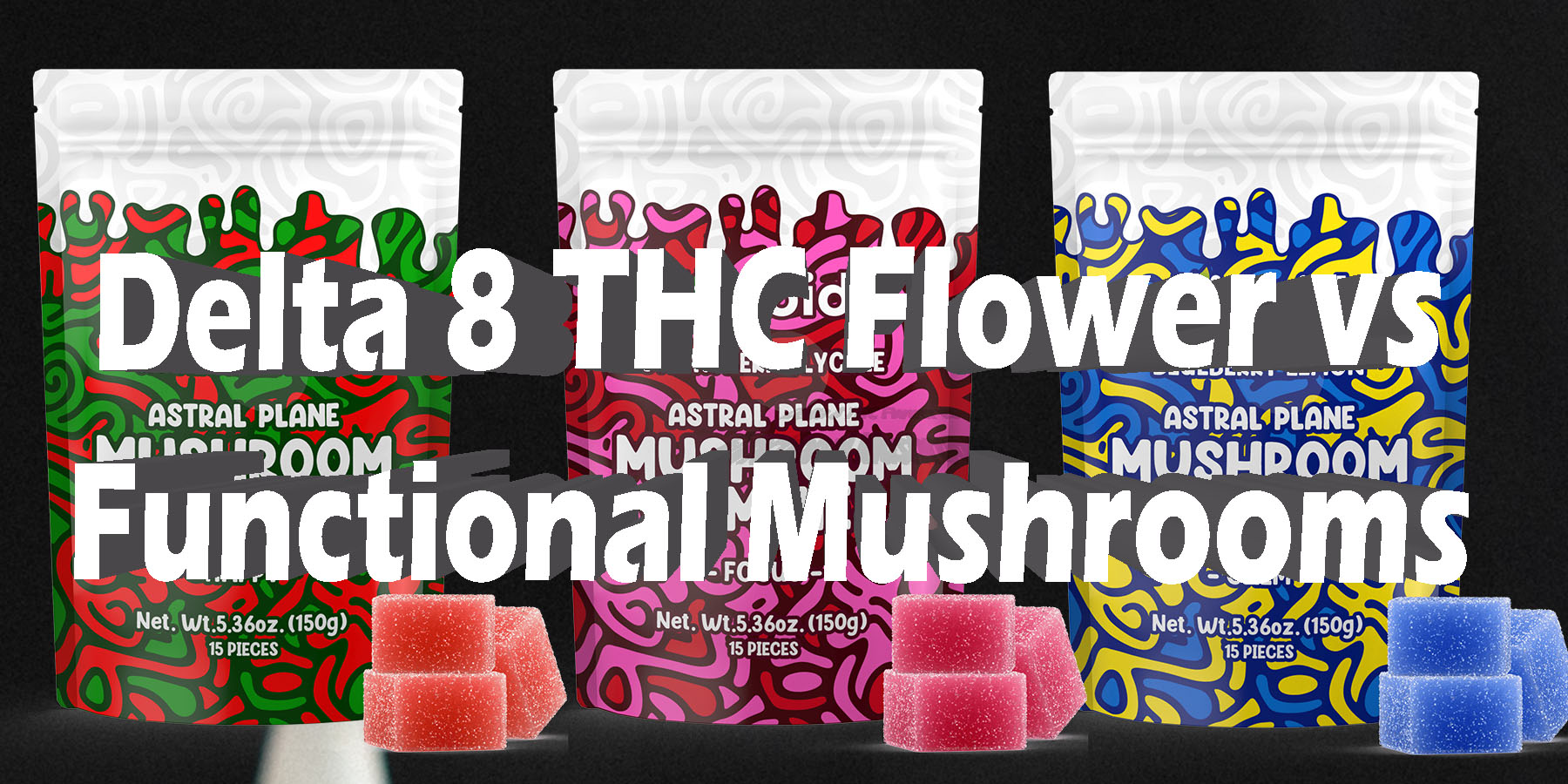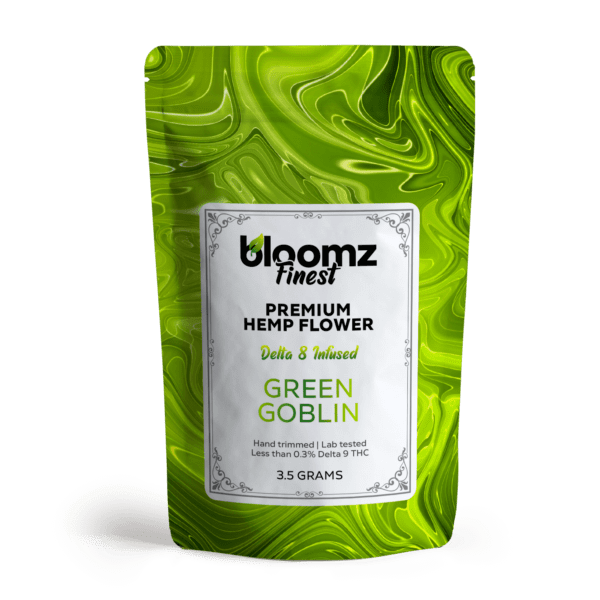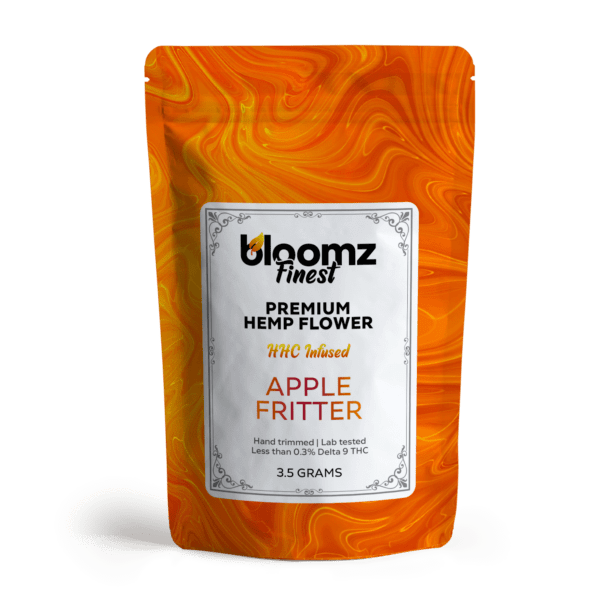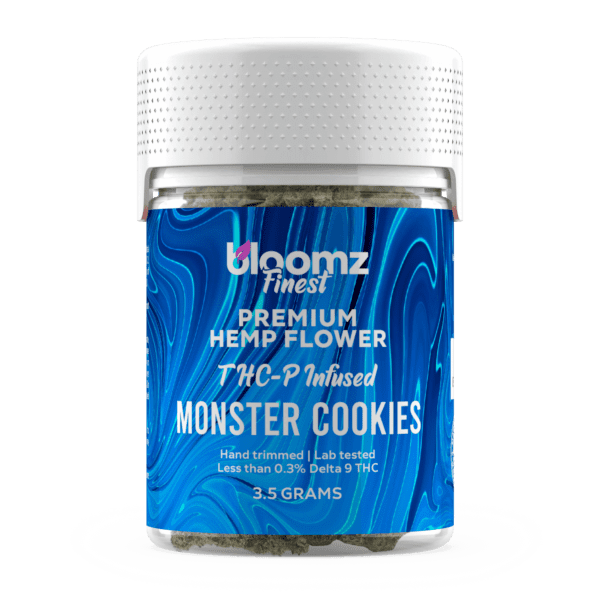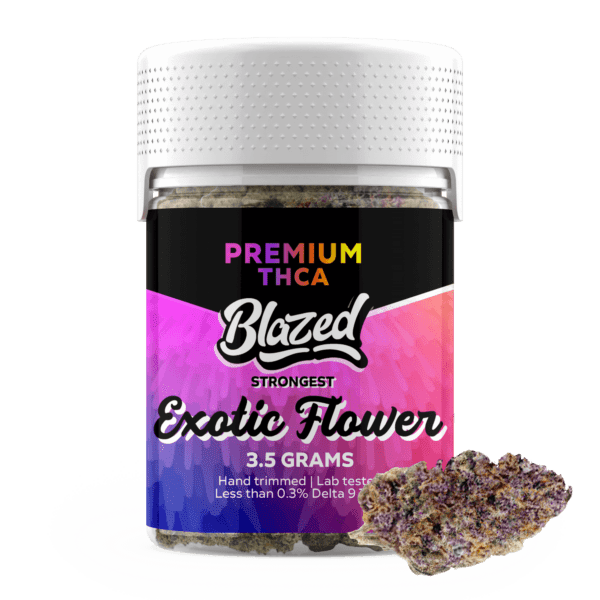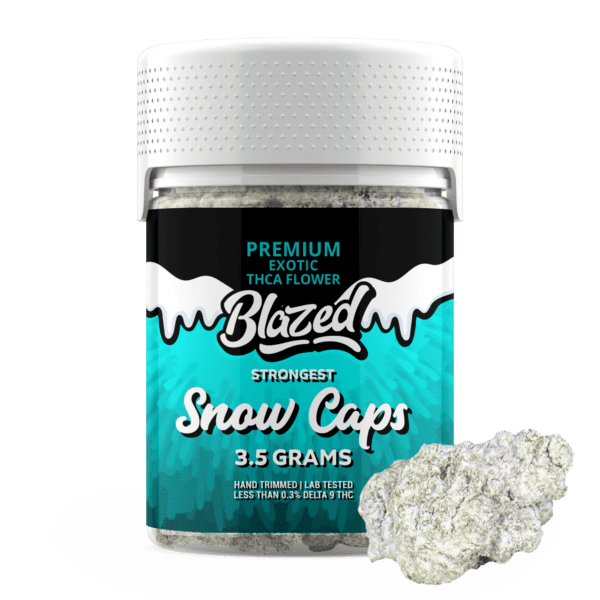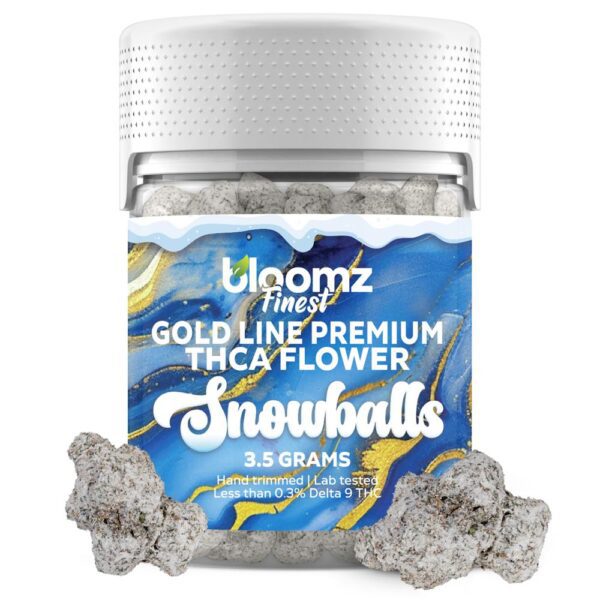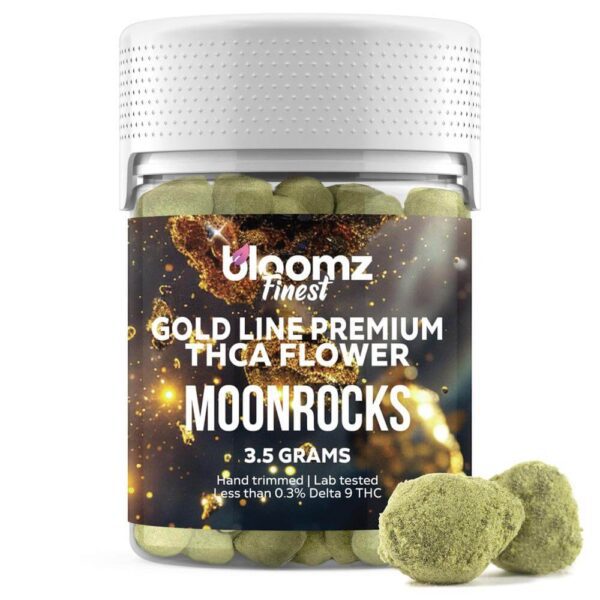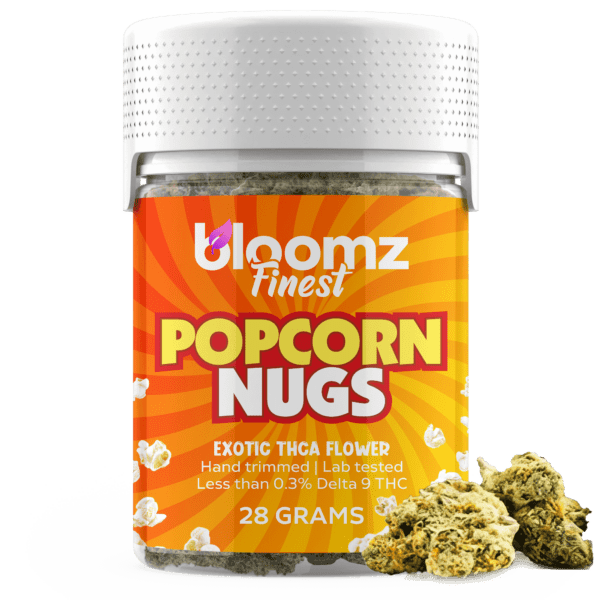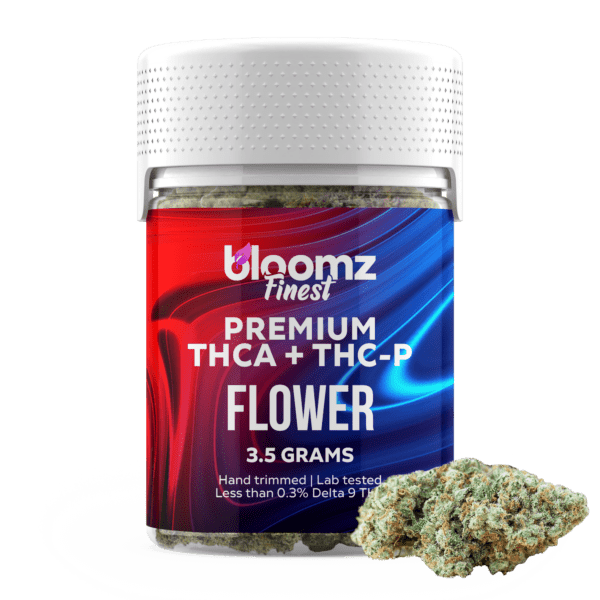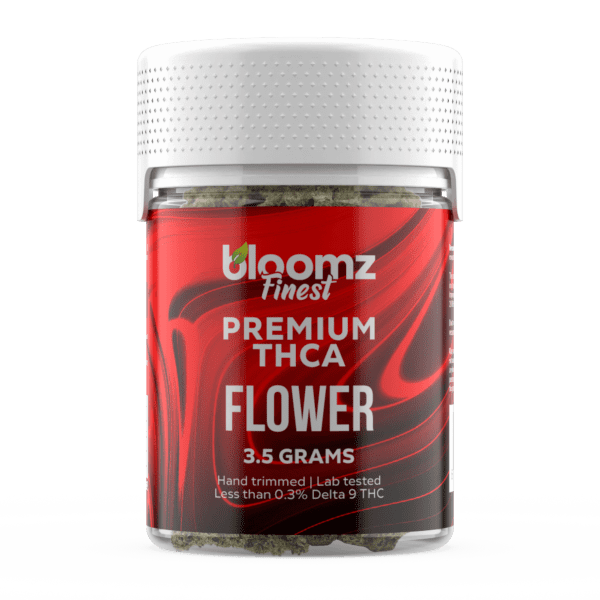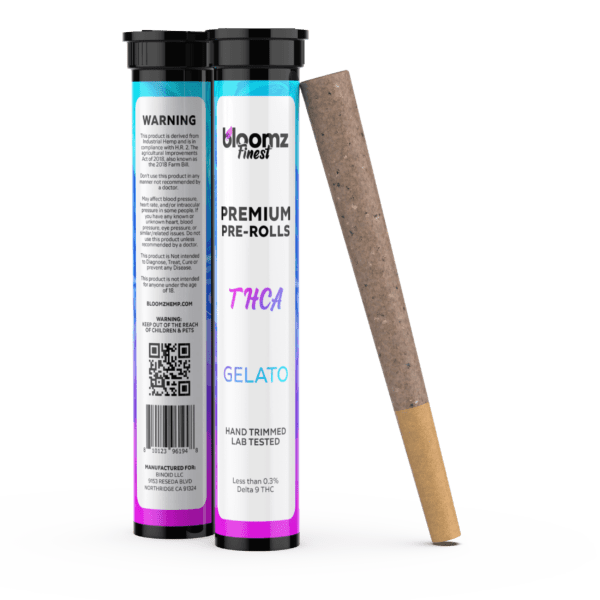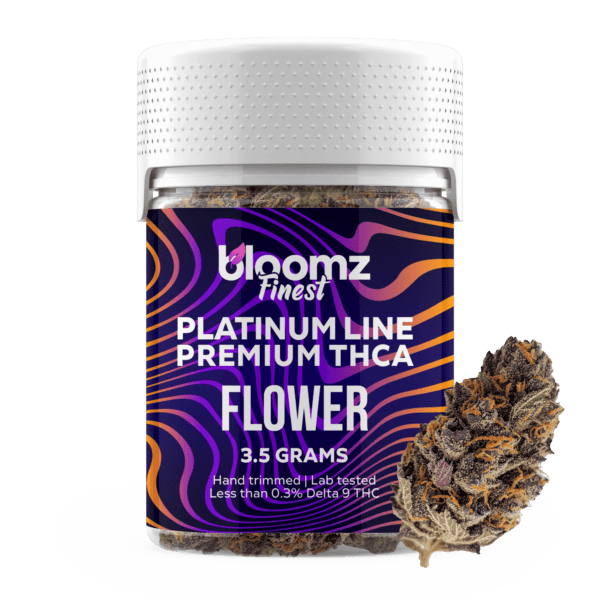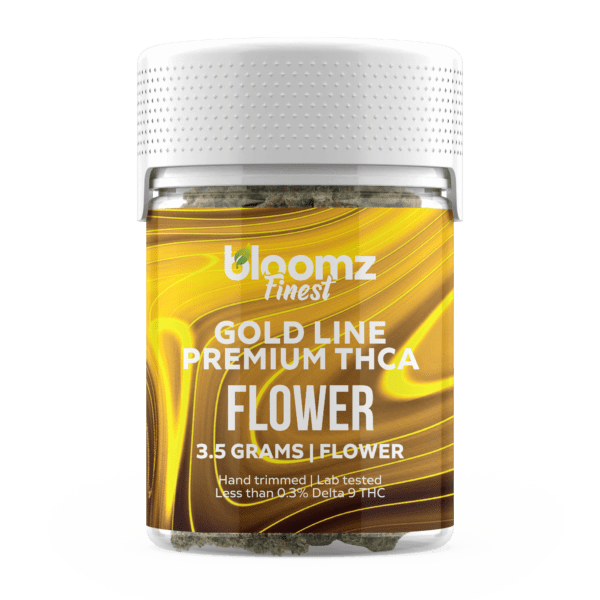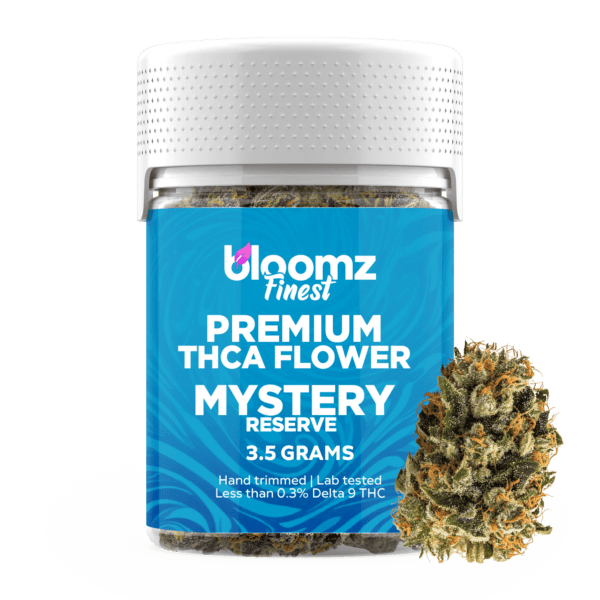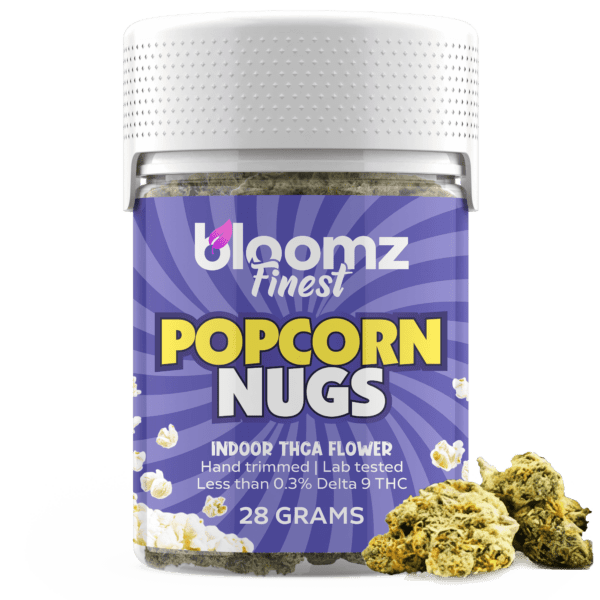In the vibrant and ever-expanding realm of natural wellness and personal enhancement, discerning individuals are presented with a fascinating array of botanical and fungal allies, each offering its own unique pathway to a more enriched experience of daily life.
From the familiar embrace of plant-derived compounds to the ancient wisdom held within mycelial networks, the options for subtly shifting one’s internal landscape are more diverse than ever. On one side of this intriguing spectrum, we encounter Delta 8 THC Flower, a sophisticated product of modern hemp science designed to deliver a gentle, clear-headed euphoria and a sense of calm. It represents a refined approach to altering perception.
On the other, we delve into the world of functional mushrooms, a category of fungi celebrated not for their intoxicating properties, but for their centuries-old roles in traditional practices aimed at promoting overall well-being and a centered state. This comparison is not about choosing between “highs”, but rather about understanding the distinct philosophies and mechanisms by which these two compelling options contribute to a more optimized and harmonious existence.
TO BUY DELTA 8 THC FLOWER CLICK HERE
Recommended products
Why It’s Important to Breakdown the Matchup of Delta 8 THC Flower vs. Functional Mushrooms
In a wellness landscape teeming with natural products, the ability to accurately distinguish between different categories and their intended effects is absolutely paramount for consumers. The matchup between Delta 8 THC Flower and functional mushrooms, while seemingly disparate, represents a critical comparison because these two product types operate on entirely different principles, aim for distinct outcomes, and interact with the body in fundamentally dissimilar ways.
A detailed breakdown is essential not only to prevent confusion but also to guide consumers toward making choices that genuinely align with their personal goals, whether those goals are mild psychoactive euphoria or subtle, holistic enhancement of daily function. Misunderstanding these differences could lead to unmet expectations or, in some cases, inappropriate use.
The primary reason this distinction is so important lies in the core nature of their effects. Delta 8 THC flower is fundamentally a psychoactive product, designed to induce a noticeable, albeit mild, altered state of consciousness characterized by euphoria, relaxation, and a sense of bliss. Its effects are immediate, discernible, and intended for recreational enjoyment or a specific shift in mental state.
Functional mushrooms, by stark contrast, are non-psychoactive and are traditionally utilized for their adaptogenic, nootropic, or general wellness-promoting properties. Their effects are typically subtle, cumulative, and aimed at supporting the body’s natural processes over time, rather than inducing an immediate shift in perception. To expect an intoxicating effect from a functional mushroom, or subtle long-term support from Delta 8 flower, would be a complete misunderstanding of their respective roles.
Furthermore, the mechanisms by which these substances interact with the human body are entirely separate, highlighting the need for a clear breakdown. Delta 8 THC engages with the endocannabinoid system, influencing neurotransmitter release and neuronal activity to create its euphoric and relaxing sensations. Functional mushrooms, on the other hand, contain a diverse array of bioactive compounds, such as beta-glucans, triterpenes, and polysaccharides, which interact with various systems including the immune system, the nervous system, and metabolic pathways.
Their benefits are derived from complex biochemical interactions that do not typically involve directly altering consciousness. Understanding these different pathways allows consumers to appreciate the specific kind of biological support or experience each product is engineered to provide.
Finally, this comparison helps to clarify differing approaches to daily integration. Delta 8 THC flower is often seen as an occasional-use product for specific moments of relaxation or enjoyment. Functional mushrooms, conversely, are frequently incorporated into daily routines as part of a sustained wellness regimen, with their benefits often manifesting subtly over weeks or months of consistent use.
By clearly delineating these distinct intentions and integration strategies, individuals can make more informed choices about which natural ally best fits their lifestyle and their overarching vision for personal well-being. This ensures that the chosen product truly serves its intended purpose, preventing the frustration of misaligned expectations.
Contender #1: Delta 8 THC Flower
Delta 8 THC flower has emerged as one of the most talked-about and innovative products in the modern hemp industry, representing a fascinating fusion of nature’s bounty and human scientific ingenuity. It offers a unique middle ground for those curious about the world of THC, providing a distinct experience that sets it apart from both traditional cannabis and non-intoxicating CBD flower. To the casual observer, a nug of Delta 8 THC flower looks and smells much like any other high-quality cannabis, boasting rich aromas and a crystalline sheen.
However, its true nature is more complex, as it is not a flower that grows naturally with high concentrations of Delta 8 THC. Instead, it is a meticulously crafted product, born from a multi-step process that begins with premium hemp and ends with a uniquely psychoactive final product. Its rise in popularity is a direct result of the 2018 Farm Bill, which created the legal space for hemp-derived cannabinoids and sparked a wave of innovation that brought Delta 8 THC to the forefront of the market.
At the heart of this product is Delta-8-Tetrahydrocannabinol, or Delta 8 THC – a cannabinoid and a close chemical cousin to the more famous Delta 9 THC, the primary psychoactive component in marijuana. Delta 8 THC is an isomer of Delta 9 THC, meaning they share the same chemical formula but have a slightly different atomic structure. The key difference lies in the placement of a specific double bond in their carbon chain; in Delta 8 THC, this bond is on the 8th carbon chain, while in Delta 9 THC, it is on the 9th.
This seemingly minor structural variance has a significant impact on how the molecule interacts with the body’s endocannabinoid system (ECS), particularly the CB1 receptors in the brain. Delta 8 THC binds to these receptors less strongly than Delta 9 THC, which is believed to be the primary reason for its characteristically milder, more manageable, and often clearer-headed psychoactive effects. Because Delta 8 THC occurs naturally in the cannabis plant in only minuscule, non-economical amounts, it must be created through a chemical conversion process in a laboratory setting.
Recommended products
The creation of Delta 8 THC flower is a sophisticated, multi-stage process that highlights the advanced capabilities of the modern hemp industry. It is crucial to understand that “Delta 8 THC flower” is not a strain of cannabis that naturally produces high levels of this cannabinoid. Instead, it is a high-quality hemp flower, typically rich in CBD or CBG, that has been enhanced with pure Delta 8 THC distillate. The quality of the final product depends heavily on the quality of both the starting hemp material and the precision of the infusion process. Allow us to elaborate:
Premium Hemp Flower Cultivation: The foundation of any good Delta 8 THC flower is a top-shelf CBD or CBG hemp flower. Expert cultivators grow terpene-rich, visually appealing, and potent hemp strains, often in controlled indoor environments to maximize quality. After harvesting, this flower is carefully dried and cured to preserve its natural aromas, flavors, and cannabinoid profile.
Delta 8 THC Isomerization: In a controlled laboratory environment, CBD isolate or distillate, which is extracted from legally grown hemp, is used as the starting material. This CBD undergoes a chemical process called isomerization. Using a combination of acids, solvents, and heat, chemists rearrange the molecules of CBD, converting them into Delta 8 THC distillate. This process requires significant expertise to ensure a pure and clean final product.
Distillate Application and Infusion: Once the potent Delta 8 THC distillate is created, it must be applied to the premium hemp flower. There are several methods for this, each with its own pros and cons. A common method is to lightly spray the flower with the heated, viscous distillate and then tumble it to ensure an even coating. Another method involves creating a powdered version by freezing the distillate and dusting it over the buds, sometimes along with CBD or CBG kief. More advanced techniques use a solventless cryo-infusion process to bind the distillate to the flower more deeply and evenly.
Third-Party Laboratory Testing: This final step is arguably the most important for consumer safety. Reputable brands will send a sample of the finished, infused flower to an independent, third-party lab. This lab tests not only for the potency of Delta 8 THC,, CBD, and other cannabinoids but also for the presence of any residual solvents, pesticides, or heavy metals from the cultivation and conversion processes, ensuring the final product is both potent and safe for consumption.
The market for Delta 8 THC flower offers a growing variety of types and categories, primarily distinguished by the quality of the base hemp flower and the method of infusion. While not as diverse as the naturally grown THCA flower market, the options still allow consumers to choose a product that aligns with their preferences for aroma, potency, and convenience. Understanding these categories is key to navigating the Delta 8 THC space and selecting a high-quality product that will deliver a clean and enjoyable experience. The quality of the experience is directly tied to the craftsmanship involved in the flower’s creation:
Indoor Delta 8 Flower: This is considered the premium tier. The process starts with top-shelf, indoor-grown CBD or CBG hemp flower, which is known for its dense bud structure, vibrant appearance, and powerful terpene profile. This high-quality base flower is then infused with Delta 8 THC distillate. The result is a visually stunning and highly aromatic product that offers the most flavorful and potent experience, as the rich natural terpenes of the hemp flower work in synergy with the psychoactive effects of the Delta 8 THC.
Outdoor Delta 8 Flower: This category uses hemp flower that has been grown outdoors under the sun. Outdoor hemp is often more affordable and sustainable to produce, but the buds may be less dense and visually perfect than their indoor counterparts. When infused with Delta 8 THC, this flower provides a more budget-friendly option for consumers who are primarily focused on the effects of the cannabinoid rather than the connoisseur-level aesthetics and aromas of indoor-grown flower.
Delta 8 Smalls: Similar to other types of cannabis flower, “smalls” refer to the smaller, popcorn-sized buds that are separated from the larger colas during the trimming process. These smalls come from the same high-quality indoor or outdoor plants but are sold at a discount due to their size. Delta 8 Smalls offer an excellent value, providing the same potency and experience as larger buds at a more accessible price point.
Delta 8 Nugs: This is the standard form of Delta 8 THC flower, representing the well-formed, trimmed buds that are infused and sold as the primary product. The term “nugs” simply refers to the classic, ready-to-use flower form that consumers are most familiar with. The quality can range significantly based on whether the base hemp was grown indoors or outdoors.
Delta 8 Moonrocks: These are a specialty product created for those seeking maximum potency. A Delta 8 Moonrock is made by taking a nug of premium hemp flower, coating it in a sticky layer of potent Delta 8 THC distillate, and then rolling the entire thing in a thick layer of CBD or CBG kief (the concentrated trichomes of the hemp plant). The result is a dense, incredibly powerful product that delivers a trifecta of cannabinoid effects and is best consumed in a pipe or bowl.
Delta 8 Pre-Rolls, Blunts & Joints: For ultimate convenience, many brands offer pre-rolled products. These consist of ground Delta 8 THC flower neatly rolled into papers (joints) or hemp wraps (blunts), often with a filter tip included. They eliminate the need for any grinding or rolling, providing a simple, ready-to-use option that is perfect for on-the-go use or for sharing in social settings.
A common point of confusion in the Delta 8 THC flower market revolves around the use of well-known strain names like “OG Kush” or “Sour Diesel.” It is crucial to understand that these names refer to the genetic strain of the base hemp flower that was used before the Delta 8 THC was added.
The overall effects of the final product are a synergistic blend of two key factors: the terpene profile of the original hemp strain (which dictates its Indica, Sativa, or Hybrid characteristics) and the overarching psychoactive effect of the Delta 8 THC itself. This combination allows for a nuanced experience where the foundational character of a classic strain is overlaid with the unique, clear-headed buzz of Delta 8:
Indica: When an Indica-dominant hemp strain, known for its relaxing and sedating terpene profile (often rich in myrcene), is used as the base for Delta 8 THC flower, the resulting product is geared towards deep relaxation and calm. The gentle, euphoric buzz of the Delta 8 THC combines with the naturally soothing qualities of the Indica terpenes, making it an excellent choice for evening use, unwinding after a long day, or settling into a state of chilled-out contentment and bodily comfort.
Sativa: A Sativa-dominant hemp strain, typically characterized by an uplifting and energizing terpene profile (often containing limonene or pinene), forms the basis for a more invigorating Delta 8 THC experience. The clear-headed, functional high of the Delta 8 is complemented by the stimulating nature of the Sativa terpenes. This combination is ideal for daytime use, creative pursuits, social activities, or any situation where a user desires a boost of euphoric energy without the potential for mental fog.
Hybrid: Hybrid hemp strains are crossbreeds of Indica and Sativa genetics, offering a balanced spectrum of effects. When infused with Delta 8 THC, these strains provide the best of both worlds. A Hybrid Delta 8 THC flower can deliver a pleasant, uplifting cerebral buzz coupled with a comfortable and relaxing body sensation, making it incredibly versatile. Depending on whether it is Sativa-dominant or Indica-dominant, it can be suitable for a wide range of activities at any time of day.
The legality of Delta 8 THC in the United States is one of the most contentious and rapidly evolving topics in the entire cannabinoid industry. Its legal standing originates from the 2018 Farm Bill, which legalized hemp and all its derivatives, extracts, and cannabinoids, as long as the final product contains less than 0.3% Delta 9 THC. Because Delta 8 THC can be derived from legal hemp (specifically from CBD), the industry has operated under the assumption that it is a legal hemp product. However, this interpretation is heavily disputed.
The Drug Enforcement Administration (DEA) has issued an Interim Final Rule suggesting that synthetically derived tetrahydrocannabinols are illegal controlled substances, and there is a fierce debate over whether the laboratory conversion of CBD to Delta 8 THC constitutes “synthesis.” In response to this ambiguity and concerns over the unregulated market, many states have taken matters into their own hands, explicitly banning or heavily restricting the sale of Delta 8 THC products. Therefore, while it may be accessible in some states, it is illegal in many others, and its federal status remains in a precarious state of uncertainty.
Recommended products
The purposes for using Delta 8 THC flower are centered around achieving a mild to moderate psychoactive experience, and the methods of consumption are largely identical to those for any other type of cannabis flower. The primary goal is to heat the flower, which vaporizes the infused Delta 8 THC distillate along with the natural cannabinoids and terpenes of the base hemp, allowing for inhalation and rapid absorption into the bloodstream. The choice of method often comes down to personal preference for flavor, smoothness, and convenience. Because it is an infused product, some users may notice a slightly different burn or vapor quality compared to an all-natural flower:
Vaping (using a portable or desktop vaporizer): Vaping is a highly popular method as it heats the flower to a precise temperature without combustion. This process releases the Delta 8 THC and terpenes as a vapor, which provides a smoother and more flavorful experience than smoking. Vaping allows users to better taste the nuanced terpene profile of the base hemp flower and offers a cleaner inhalation experience, avoiding the harsh byproducts of smoke.
Smoking: This is the classic and most straightforward method. It involves combusting the Delta 8 THC flower and inhaling the smoke, typically through a pipe, bong, or by rolling it into a joint or blunt. Smoking delivers a very rapid onset of effects, usually within minutes, and a robust, full-bodied experience. The high heat of combustion ensures that all the cannabinoids are activated instantly for a potent effect.
Cooking/Baking: Delta 8 THC flower can be used to make edibles. An interesting point here is that the Delta 8 THC distillate used for infusion is already decarboxylated (activated). However, the base hemp flower is not. Therefore, if a user wants to experience the full effects of the CBD or CBG in the base flower alongside the Delta 8, they would still need to decarboxylate the entire flower in an oven before infusing it into a fat like butter or oil for use in recipes. Edibles will produce a much stronger and longer-lasting effect with a delayed onset.
The overall effects of Delta 8 THC flower are what truly set it apart and have driven its immense popularity. Most users describe the experience as a significantly milder and more manageable version of a traditional Delta 9 THC high. The psychoactive buzz is present and noticeable, characterized by a pleasant sense of euphoria, an uplifted mood, and a warm, relaxing sensation that spreads throughout the body.
However, what makes it unique is its reported lack of intensity in the mental effects. Users frequently report a clear-headed, functional, and focused high, without the potential for the anxiety, paranoia, or mental fog that can sometimes accompany strong doses of Delta 9 THC. This makes it an appealing option for those who are sensitive to Delta 9, for beginners curious about THC, or for experienced users seeking a less intoxicating option for daytime use that allows them to remain productive and socially engaged.
Pros & Cons
When considering Delta 8 THC flower, it is essential to weigh its unique advantages against its notable drawbacks. This product’s profile is a direct result of its manufactured nature and its complex legal standing, creating a specific set of pros and cons that are crucial for any potential consumer to understand before making an informed decision.
Pros:
Milder, More Manageable Psychoactive Effects: The most celebrated advantage of Delta 8 THC is its gentle psychoactive profile. It offers a noticeable and enjoyable buzz without the overwhelming intensity that can sometimes come with Delta 9 THC, making it an excellent entry point for those new to THC or for users who prefer a less potent experience.
A Clear-Headed and Functional High: Users frequently report that the Delta 8 THC high is uniquely clear-headed, allowing them to feel euphoric and relaxed while still maintaining mental focus and clarity. This “functional” aspect makes it suitable for creative endeavors, social situations, or daytime use when productivity is still desired.
Lower Reported Incidence of Anxious Feelings: For individuals who are prone to feeling anxious or paranoid with Delta 9 THC, Delta 8 THC is often reported to be a much smoother experience. Its lower binding affinity for the CB1 receptors is thought to reduce the likelihood of inducing these unwanted mental side effects, leading to a more consistently pleasant journey.
Legal Accessibility in Certain States: Due to the 2018 Farm Bill, Delta 8 THC derived from hemp is legal to sell and possess in many states where recreational Delta 9 THC is not. This provides a legal avenue for individuals in those regions to access a psychoactive THC product through a recognized commercial channel.
Synergistic Combination of Compounds: Delta 8 THC flower offers a unique synergy between the infused psychoactive cannabinoid and the rich profile of the base hemp flower. The user experiences the effects of Delta 8 THC alongside the natural CBD, CBG, and terpenes of the hemp, which can contribute to a more well-rounded and nuanced entourage effect.
Wide Variety of Product Options: The market has matured to offer a broad selection of Delta 8 THC flower products. From different strains of base hemp (Indica, Sativa, Hybrid) to various product forms like moonrocks and pre-rolls, consumers have a great deal of choice to tailor their experience to their specific preferences.
Generally More Affordable: In many markets, Delta 8 THC products are more affordable than their Delta 9 THC counterparts found in state-licensed recreational dispensaries. This price difference can make it a more accessible option for budget-conscious consumers seeking a THC experience.
Rapid Onset of Effects When Inhaled: Like any smokable flower, Delta 8 THC flower provides a very fast onset of effects, typically felt within minutes of smoking or vaping. This allows users to easily gauge the effects and titrate their dose, taking a small amount and waiting to see how they feel before consuming more.
Pleasant Body Sensation: Many users report that Delta 8 THC provides a particularly enjoyable and soothing body high. It can induce a profound sense of physical relaxation and comfort without being overly sedating, making it great for unwinding and releasing physical tension.
Flavorful Experience from Terpenes: Because high-quality Delta 8 THC flower uses premium, terpene-rich hemp as its base, the smoking or vaping experience can be incredibly flavorful and aromatic. This allows users to enjoy the complex taste profiles of famous cannabis strains in a new and legally accessible format.
Cons:
Highly Contentious and Unstable Legal Status: This is the most significant drawback. Despite its origins in the Farm Bill, many states have banned Delta 8 THC, and its federal legality is under intense scrutiny from the DEA. The legal landscape is a confusing and rapidly changing patchwork, placing consumers at risk of unknowingly violating state laws.
Lack of Regulation and Potential Safety Concerns: The Delta 8 THC market is largely unregulated, leading to a wide variance in product quality and safety. The chemical conversion process used to create the distillate can leave behind harmful residual solvents if not performed and purged correctly. It is absolutely crucial to purchase only from reputable brands that provide comprehensive, up-to-date third-party lab reports.
It is a Manufactured, Not a Natural, Product: For cannabis purists, the fact that Delta 8 THC flower is an infused or coated product is a major con. It lacks the authenticity of a naturally grown flower, and the application of the distillate can sometimes be uneven, sticky, or harsh to smoke compared to an untouched, natural bud.
Will Likely Cause a Failed Drug Test: Despite being federally legal in some places and milder than Delta 9, Delta 8 THC is still a tetrahydrocannabinol. It will be metabolized by the body into compounds that are indistinguishable from Delta 9 metabolites on standard drug tests. Using Delta 8 THC will almost certainly result in a positive test for THC.
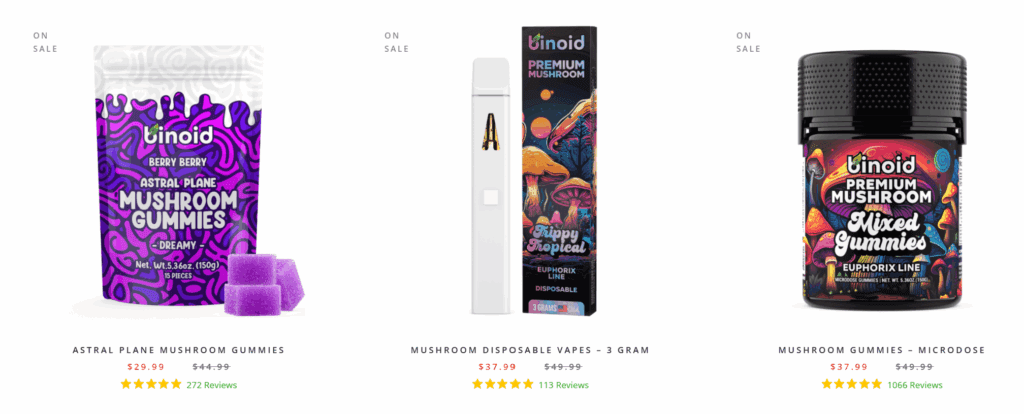
Contender #2: Functional Mushrooms
Stepping into the spotlight from the rich, diverse, and often mysterious world of mycology, functional mushrooms represent a category of fungi valued not for their psychoactive properties, but for their deep well of compounds believed to support overall health and vitality. These are the quiet powerhouses of the fungal kingdom, the great communicators and recyclers of nature, working silently beneath the forest floor to sustain the entire ecosystem.
This foundational, supportive role in nature mirrors their celebrated function within the human body. They are distinct from the culinary mushrooms we find in the grocery aisle and worlds apart from their psychedelic cousins, which often command more dramatic headlines. Functional mushrooms are nature’s tiny biochemical factories, producing a wealth of bioactive compounds that have been revered by traditional wellness practices for centuries as profound allies in the quest for balance and longevity.
Their re-emergence into the mainstream wellness conversation is a testament to a growing desire for natural, holistic approaches to well-being, focusing on balance, resilience, and foundational support rather than immediate, perceptible shifts in consciousness. They are the steady, reliable allies in a long-term wellness journey, working subtly in the background to help our bodies perform at their best.
What defines “functional mushrooms” is their rich array of bioactive compounds that interact with the human body in various beneficial ways, without inducing any psychoactive or intoxicating effects. These fungi are packed with complex polysaccharides, particularly beta-glucans, which are renowned for their ability to interact with and support the body’s innate defense systems. Beyond these, functional mushrooms also contain a wealth of other molecules like antioxidant-rich triterpenes, sterols, cordycepin, and unique enzymes, all of which contribute to their holistic effects.
These compounds work together in a complex synergy, but crucially, they are all entirely non-intoxicating and will not produce a “high” or any form of altered perception. Their purpose is primarily adaptogenic and supportive, a concept that describes their believed ability to help the body adapt to various internal and external stressors in a non-specific way, thereby promoting a state of internal balance, or homeostasis. The experience of using functional mushrooms is not one that is felt in minutes or hours with a distinct onset, but rather is integrated into the body’s systems over extended periods of consistent use, much like a long-term conditioning program for your overall vitality.
The history of functional mushrooms stretches back thousands of years, deeply embedded in the traditional medicine systems of East Asia, particularly China and Japan, but also in Siberia, North America, and parts of Europe. Records from the ancient Chinese text Shen Nong’s Divine Farmer’s Materia Medica, dating back over 2,000 years, detail the use of species like Reishi (Lingzhi in Chinese) as “mushrooms of immortality,” placing them in the highest category of “superior herbs” reserved for emperors and royalty due to their rarity and perceived profound influence on vitality and longevity.
In Taoist traditions, Reishi was sought after to nourish the “Shen,” or the spirit. Similarly, Cordyceps has a long history in Traditional Chinese Medicine (TCM) and Tibetan medicine, often used to support stamina and overall vigor at high altitudes. Even in ancient Europe, the Greek physician Hippocrates documented the use of the tinder fungus (Fomes fomentarius) around 450 BCE for its valuable properties. This ancient wisdom, passed down through generations of herbalists and practitioners, forms the bedrock of modern interest, providing a testament to their enduring perceived value long before modern science could begin to analyze their complex chemistry.
The world of functional mushrooms is remarkably diverse, with each species offering a unique profile of bioactive compounds and traditional uses. While many edible mushrooms provide general nutritional benefits, these specific “functional” varieties are distinguished by their higher concentrations of unique compounds that contribute to particular supportive qualities. They represent a fascinating natural pharmacy, each a testament to the intricate biochemical processes occurring within the fungal kingdom, contributing to a holistic approach to daily vitality and allowing for a highly personalized approach to wellness.
Reishi (Ganoderma lucidum): Known as the “Mushroom of Immortality” and revered in TCM as a “spirit calming” herb, Reishi is a striking, woody polypore mushroom with a glossy, varnished cap. Due to its tough texture and intensely bitter taste, it is almost exclusively consumed as an extract or tea. It is most commonly associated with promoting a sense of calm, centeredness, and relaxation, making it a popular choice for evening rituals. Its adaptogenic qualities are prized for helping the body and mind cope with the demands of a hectic lifestyle, supporting a sense of balance and preparing the body for restful sleep cycles.
Lion’s Mane (Hericium erinaceus): This unique mushroom is instantly recognizable, appearing as a large, white, shaggy mass of cascading, icicle-like spines. When cooked, it has a delicate, savory flavor often compared to crab or lobster. Traditionally used by Buddhist monks to aid in focus and concentration during meditation, Lion’s Mane is the quintessential mushroom for supporting cognitive function and mental clarity. It contains unique compounds known as hericenones and erinacines, which are the focus of scientific interest regarding their role in supporting nerve growth factor (NGF), a key protein for brain cell health.
Cordyceps (Cordyceps sinensis and Cordyceps militaris): Famous for its energizing properties, Cordyceps has a fascinating history, though today’s supplements use the sustainably cultivated C. militaris species. Traditionally used to enhance stamina, lung capacity, and endurance, Cordyceps is now a favorite among athletes and active individuals for supporting physical performance and vitality. It is believed to support the body’s natural production of adenosine triphosphate (ATP), the core molecule of cellular energy, providing a smooth, sustained energy boost without the jitters associated with stimulants.
Chaga (Inonotus obliquus): Chaga presents a rugged exterior, growing not as a typical mushroom but as a hard, black, crusty sclerotium on birch trees in cold climates. This dense mass is a powerhouse of antioxidants and contains betulinic acid, a compound it concentrates from the birch tree’s bark. Traditionally harvested and brewed into a tea in Siberia and other northern regions as a general wellness tonic, Chaga is renowned for its role in supporting the body’s natural defense systems and promoting overall resilience, making it a valuable ally during seasonal changes.
Turkey Tail (Trametes versicolor): Named for its fan-like shape and vibrant, concentric stripes of color, this is one of the most common and visually beautiful mushrooms. It is also one of the most extensively researched functional mushrooms in modern science. It is packed with specific, protein-bound polysaccharides known as polysaccharide-K (PSK) and polysaccharide-peptide (PSP), which have been the subject of numerous studies. Due to these compounds, Turkey Tail is almost exclusively associated with providing powerful, foundational support for a robust and healthy immune system.
Shiitake (Lentinula edodes): Perhaps the most famous mushroom on this list from a culinary perspective, Shiitake is a delicious and savory ingredient that holds a revered place in many Asian cuisines for its rich, umami flavor. However, beyond its wonderful taste, it is also a potent functional mushroom with a long history of use in traditional medicine. It contains a powerful polysaccharide called lentinan, as well as eritadenine, and is a rich source of B vitamins, supporting cardiovascular health and a healthy, vigorous immune system.
Maitake (Grifola frondosa): Known affectionately as the “Hen of the Woods” in the West and the “Dancing Mushroom” in Japan (as people would supposedly dance with joy upon finding it), Maitake grows in large, feathery clusters at the base of oak trees. It is prized for its rich, earthy flavor and its robust, meaty texture. Functionally, it is celebrated for containing a unique, complex polysaccharide known as the Maitake D-fraction, and it is most often associated with supporting a healthy metabolic function and promoting a balanced immune response.
The modern wellness industry has made consuming functional mushrooms easier and more convenient than ever before, moving far beyond the traditional method of brewing teas from dried fungi. A vast array of innovative products now exists, allowing individuals to seamlessly integrate the benefits of these mushrooms into their daily routines in a form that suits their lifestyle and taste preferences. This diversity of product types has been a key driver of their recent explosion in popularity, transforming ancient remedies into accessible and often delicious modern supplements and foods.
Powder: This is one of the most versatile forms, typically consisting of a finely ground mushroom extract. It’s crucial to choose an “extracted” powder (using hot water, alcohol, or both) to ensure the bioactive compounds are bioavailable, as the human body cannot easily break down the raw chitin in mushroom cell walls. These powders can be easily added to smoothies, coffee, tea, soups, or even baked goods, allowing for flexible dosing.
Edibles (Gummies and Bars): For ultimate convenience and palatability, functional mushrooms are now widely available in delicious edible forms. Gummies offer a pre-measured, tasty, and chewable dose, completely masking any earthy or bitter flavors and making daily supplementation feel like a pleasant treat. Similarly, nutrition bars and chocolate bars are often infused with mushroom extracts, providing a functional boost to a daily snack.
Tinctures: Tinctures are highly concentrated liquid extracts made by soaking the mushrooms in a solvent like food-grade alcohol or glycerin to pull out the active compounds. A “dual-extraction” tincture uses both hot water and alcohol to capture both water-soluble polysaccharides and alcohol-soluble triterpenes. They are typically taken sublingually (under the tongue) for rapid absorption, offering a potent and precise dosing method.
Capsules: For individuals who prioritize a no-fuss, tasteless, and supremely convenient option, capsules are the perfect solution. They contain a precise, pre-measured dose of powdered mushroom extract, offering a straightforward way to get a consistent daily amount without any preparation or flavor considerations. This is a popular choice for those integrating mushrooms into a daily regimen alongside other vitamins and supplements.
Beverages: The functional beverage market has exploded with mushroom-infused products, with mushroom coffee being the clear frontrunner. These products often blend extracts like Lion’s Mane and Cordyceps with high-quality coffee beans to provide focused, sustained energy without the jitters. Beyond coffee, one can find mushroom teas, nourishing hot cocoa blends with Reishi, and ready-to-drink wellness shots and elixirs.
Dietary Supplements: This is the broad regulatory category under which most functional mushroom products are sold in the United States, governed by the Dietary Supplement Health and Education Act of 1994 (DSHEA). This classification means they are intended to supplement the diet, must feature a “Supplement Facts” panel, and are legally prohibited from making claims to treat or cure any disease, though “structure/function” claims are permitted.
Pre-Workout Products: Capitalizing on the well-documented traditional use of Cordyceps for energy and stamina, many sports nutrition brands now incorporate this and other functional mushrooms into their pre-workout formulas. These products aim to provide a natural, non-stimulant boost to athletic performance and oxygen utilization (VO2 max), often blended with other athletic support ingredients like beta-alanine or creatine, appealing to athletes seeking a holistic and natural edge.
The synergy between the plant and fungal kingdoms is being explored in exciting ways, particularly through the combination of functional mushrooms with various non-psychoactive cannabinoids. This trend is rooted in the idea of creating holistic wellness products that leverage the complementary properties of both. For example, a product designed for evening relaxation might blend the calming-associated properties of Reishi mushroom with the soothing effects of CBD and CBN, aiming to create a powerful synergy for unwinding before sleep.
A blend for daytime focus could combine the cognitive-supporting reputation of Lion’s Mane with the alertness-promoting properties of CBG. Even full-spectrum products in legal markets might include micro-doses of THC to achieve the “entourage effect,” where the various compounds work together to create a more comprehensive effect than any single one could alone. These thoughtful combinations aim to provide targeted support for specific wellness goals, creating sophisticated, multi-faceted formulas for the discerning modern consumer.
One of the most significant and straightforward aspects of functional mushrooms is their legal status in the United States. They are unequivocally legal at the federal level and in all 50 states. This is because they are classified as food items or dietary supplements under the Dietary Supplement Health and Education Act of 1994 (DSHEA) and, crucially, contain no psychoactive or otherwise controlled substances. You can freely purchase Reishi, Lion’s Mane, Cordyceps, and other functional mushroom products online, in grocery stores, at health food shops, and from supplement retailers without any legal concern.
This clear and unambiguous legality stands in stark contrast to the complex, shifting, and often risky legal landscape of Delta 8 THC flower. The safety and accessibility that come with this legal status are major factors in their widespread adoption into mainstream wellness culture, providing consumers with peace of mind and the ability to openly incorporate these fungi into their health regimens.
The overall effects of functional mushrooms are perhaps their most defining and misunderstood feature, especially when compared to a psychoactive substance like Delta 8 THC flower. The effects are not immediate, perceptible, or intoxicating. You will not feel a “high,” euphoria, or any altered state of consciousness after consuming them. Instead, their effects are subtle, cumulative, and supportive, working in the background to help the body’s systems function optimally. The goal is to build resilience and maintain balance over time.
The experience is much like watering a plant; you don’t see the growth happen in the moment you pour the water, but with consistent care, the plant becomes stronger and more vibrant. Similarly, after weeks of consistently taking Cordyceps, an individual might notice more sustained energy during workouts. Someone using Lion’s Mane daily might find their focus gradually sharpening. The “effect” of Reishi is not a sedative kick, but a more consistent state of calm and a greater ability to cope with daily stressors over the long term. It is a proactive investment in one’s foundational well-being, not a reactive tool for changing one’s immediate state of mind.
Pros & Cons
Delving into the world of functional mushrooms reveals a spectrum of compelling advantages and a few considerations that users should be aware of. Their non-psychoactive nature, historical reverence, and broad integration into wellness routines make them a distinct category. Understanding both their strengths and their limitations is crucial for anyone looking to incorporate these powerful fungi into their daily life.
Pros:
Non-Psychoactive Nature: Perhaps their most significant advantage, functional mushrooms do not induce any altered state of consciousness, making them suitable for daily use without impairing mental clarity or driving ability. This allows for consistent integration into any lifestyle, from professional settings to parenting.
Broad Spectrum of Wellness Support: Each functional mushroom offers a unique profile of beneficial compounds that contribute to different aspects of well-being, from supporting immunity and cognitive function to promoting vitality and calm. This diversity allows for targeted support based on individual needs.
Entirely Legal and Widely Accessible: Unlike many other natural compounds, functional mushrooms are fully legal across the United States and most of the world. This means they are readily available in various reputable retail environments, ensuring easy access and promoting transparency in sourcing and manufacturing.
Historical and Traditional Use: Many functional mushrooms boast centuries, and in some cases millennia, of documented use in traditional medicine systems. This deep historical precedent lends credibility and a sense of timeless wisdom to their modern applications, linking users to ancient practices.
Subtle and Cumulative Effects: Their benefits often build over time with consistent use, offering a sustained and foundational approach to wellness rather than a fleeting, intense experience. This makes them ideal for individuals seeking long-term physiological support and a gentle sense of balance.
Versatility in Consumption: The vast array of product types—powders, tinctures, edibles, capsules, and infused beverages—makes functional mushrooms incredibly versatile. This allows consumers to choose the most convenient and enjoyable method for integrating them into their daily routines.
No Risk of Failed Drug Tests: As functional mushrooms do not contain cannabinoids or any scheduled psychoactive compounds, there is absolutely no risk of them causing a positive result on a drug test. This provides peace of mind for individuals subject to workplace or other screening.
Adaptogenic Qualities: Many functional mushrooms are considered adaptogens, meaning they help the body adapt to various stressors and maintain equilibrium. This balancing effect can contribute to an overall feeling of resilience and well-being in the face of daily challenges.
Rich in Bioactive Compounds: These fungi are packed with beta-glucans, triterpenes, antioxidants, and other unique compounds that interact with various bodily systems to support natural functions. This complex biochemical profile is the basis for their wide-ranging beneficial properties.
Potential for Synergistic Blends: Functional mushrooms can be safely and effectively combined with other natural compounds, including various cannabinoids and terpenes, to create synergistic blends. This allows for customized formulations that target specific wellness goals with enhanced efficacy.
Cons:
Lack of Immediate, Perceptible Effects: For those seeking a rapid or dramatic shift in perception or mood, functional mushrooms may be disappointing. Their effects are subtle and build over time, which can lead to a perceived lack of impact for individuals accustomed to more overt sensations.
Inconsistent Product Quality: While the market is growing, product quality can vary significantly. Some products may contain inert mycelium or fillers, or may not use proper extraction methods, leading to a lower concentration of active compounds. Consumers must research brands to ensure they are getting potent, bioavailable extracts.
Earthly Taste: Some individuals find the natural, earthy, or sometimes bitter taste of mushroom powders or tinctures unpalatable. While many products mask this taste effectively, it can be a barrier for those who are sensitive to flavors when consuming raw powders or less refined extracts.
Cost for Consistency: To experience the full, cumulative benefits, functional mushrooms often require consistent, daily use over an extended period. High-quality, potent extracts can be relatively expensive, making a long-term regimen a notable financial investment for some consumers.
How to Go About Choosing Which Option
Navigating the choice between Delta 8 THC flower and functional mushrooms requires a clear understanding of your personal goals and a frank assessment of the type of experience you seek. This is not a matter of one being inherently “better” than the other, but rather a decision based on intended outcomes: are you looking for a noticeable shift in consciousness for recreation and relaxation, or are you seeking subtle, cumulative support for overall well-being without any intoxicating effects? Your lifestyle, priorities, and desired results will be the ultimate guides in selecting the natural ally that best suits your needs.
First, consider the immediate impact you desire. If you are looking for a discernible, short-term alteration in mood, a gentle wave of euphoria, and a sense of relaxation that is distinctly “felt,” then Delta 8 THC flower is the product designed for that purpose. It offers a clear-headed psychoactive experience that is suitable for winding down, social settings, or a moment of personal bliss. Conversely, if your goal is to enhance your daily equilibrium, support your vitality, or promote mental clarity without any form of intoxication, functional mushrooms are the appropriate choice. Their benefits are subtle and often build over weeks, providing a foundational layer of wellness rather than an immediate sensation.
Next, reflect on your daily routine and long-term commitment. Delta 8 THC flower is typically an occasional-use product, integrated into specific moments when you desire its psychoactive effects. It’s an acute experience. Functional mushrooms, on the other hand, are often incorporated into a daily wellness regimen, much like vitamins or other supplements. Their benefits are cumulative, meaning consistent daily use is usually required to notice their full potential. If you’re looking for something to simply add to a specific moment of the day for a direct effect, Delta 8 fits. If you’re looking to consistently support your body and mind over weeks and months, functional mushrooms are more aligned.
Finally, consider the legal and experiential risk profile you are comfortable with. Delta 8 THC, while federally ambiguous, is sold in many places but carries the risk of a positive drug test and varies in regulation. Functional mushrooms are fully legal, non-intoxicating, and safe for daily use without fear of legal repercussions or impairment. Your comfort with legality, intoxication, and the nature of the effects will heavily influence your ultimate decision.
|
Feature |
Delta 8 THC Flower |
Functional Mushrooms |
|---|---|---|
|
Primary Effect |
Mildly psychoactive, euphoric, relaxing, clear-headed “high.” |
Non-psychoactive, supportive of overall well-being, subtle physiological effects. |
|
Mechanism |
Interacts with the Endocannabinoid System (CB1/CB2 receptors). |
Rich in beta-glucans, triterpenes, antioxidants; interacts with immune, nervous, metabolic systems. |
|
Desired Outcome |
Recreational enjoyment, relaxation, mood lift, altered perception. |
General wellness, vitality, mental clarity, balance, adaptogenic support. |
|
Onset of Effects |
Rapid (minutes when inhaled), discernible effects. |
Gradual (days/weeks of consistent use), subtle cumulative benefits. |
|
Legality |
Contentious; derived from legal hemp but legality is debated, state bans exist. |
Fully legal across all 50 states; regulated as dietary supplements. |
|
Risk of Drug Test |
High risk of positive THC drug test. |
No risk of positive drug test. |
|
Primary Use Pattern |
Occasional use for specific experiences. |
Daily, consistent use as part of a wellness regimen. |
|
Perceived Intensity |
Immediate, noticeable, mild intoxication. |
Subtle, non-intoxicating, builds over time. |
|
Target User |
Adults seeking a gentle psychoactive experience. |
Adults seeking holistic, non-intoxicating support for daily well-being. |
|
Taste/Form |
Smoked/vaped flower, various infused edibles. |
Powders, capsules, tinctures, edibles, beverages; often masked flavor. |
Charting Your Personal Course
In the rich and diverse landscape of natural supplements and gentle enhancers, the paths offered by Delta 8 THC flower and functional mushrooms diverge significantly, each leading to a unique destination. One invites you to savor a delightful, altered moment, a brief and pleasant escape from the mundane, while the other offers a sustained, underlying current of support, gently steering your internal systems towards a more harmonious and resilient state.
The profound beauty in this choice lies not in declaring one superior, but in recognizing and honoring the distinct contributions each can make to a life lived with greater intention. Understanding these fundamental differences empowers you to chart your own course with clarity, selecting the natural ally that truly resonates with the specific rhythm and aspirations of your personal journey.
TO BUY DELTA 8 THC FLOWER CLICK HERE
Recommended products
-
THCA Flower – Platinum Line
$49.99$79.99 -
THCA Flower – Exotics – Gold Line
$37.99$69.99 -
THCA Flower – Mystery Reserve
$41.99$79.99 -
THCA Smalls
$149.99$256.99

